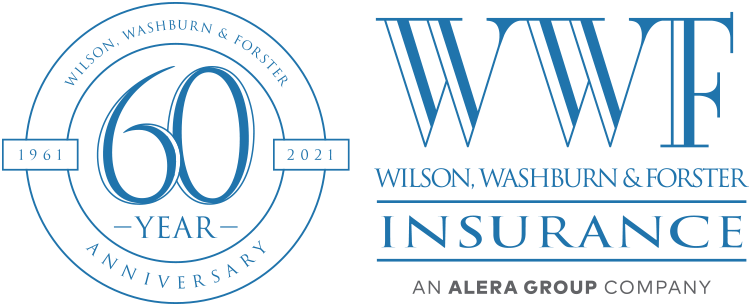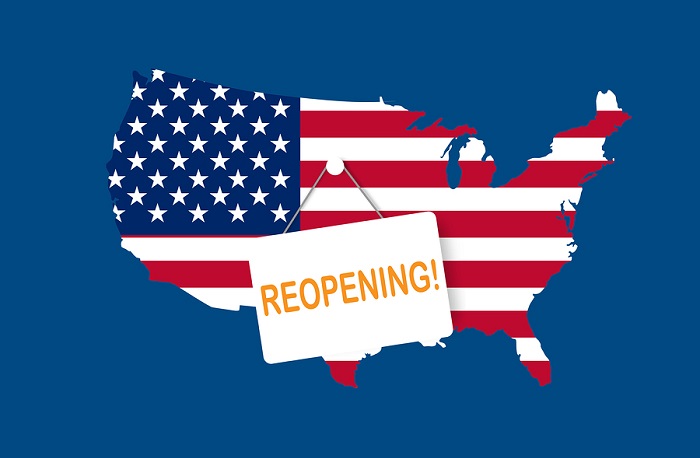Businesses are reopening in many states across the country. While this is an important step toward economic recovery, there are many risks involved. Businesses must take important precautions to keep everyone safe and to reduce their liability exposures.
The Risks of Reopening
Although many people are starting to return to work, the coronavirus pandemic is not over. More than 1.5 million people in the United States have tested positive for COVID-19, according to John Hopkins.
As businesses reopen, they face a significant risk of exposure to the novel coronavirus. Employees and customers could get sick. If this happens, the business could be forced to close again, at least temporarily, in order to control the virus. The business may also face general liability lawsuits and workers’ compensation claims from employees who contract the virus, as well as potential lawsuits from customers.
Navigating these risks will not be easy. However, there are many resources and guidelines that businesses can and should use as they resume operations.
Health and Safety Guidelines
The novel coronavirus is highly contagious, so businesses must stay vigilant about reducing the risk of outbreak.
The CDC has provided steps that employers should take to clean and disinfect their facilities. These steps include everyday cleaning measures as well as measures that should be taken when someone is sick. When disinfecting areas, use the disinfectants that have been approved by the United States Environmental Protection Agency for use against SARS-CoV-2.
There’s a lot to keep in mind, so it may be helpful to organize the various safety measures into one cohesive picture. Toward this end, the American Society of Safety Professionals has provided information on how to apply the hierarchy of controls in a pandemic. This guide gives an overview of the controls that organizations can use to contain the virus: personal protective equipment, administrative controls, engineering controls, substitution and elimination.
OSHA’s guidelines for preparing for COVID-19 may also be very useful. The resource provides measures that employers should take to protect workers based on whether the job is classified at lower, medium, high or very high exposure risk.
Guidelines from Local, State and National Governments
The White House has issued the Guidelines for Opening Up America Again. This is a three-phased approach, and it includes recommendations for employers.
However, governors will be largely responsible for deciding when the businesses in their states are allowed to reopen. As states allow businesses to reopen in phases, many are issuing safety guidelines.
Florida, for example, has a COVID-19 Resource Center. These resources include DOH COVID-19 Resources, AHCA COVID-19 Alerts, and a soon-to-be-released plan for Florida’s recovery.
Local governments may issue additional guidelines and orders for businesses in specific cities or counties.
Industry-Specific Guidelines
The CDC has issued guidance for employers. This includes the interim guidance for business and employers, which covers ways to prevent and reduce transmission, to maintain healthy business operations and to maintain a healthy work environment. The CDC also has some industry-specific guidelines, including one for faith-based organizations and one for childcare programs.
For more industry-specific guidelines, see AIHA’s Back to Work Safely site. This website provides free, downloadable resources for a variety of industries, including bars, restaurants, salons, gyms, retail, offices and construction.
Employment Practices Guidelines
In addition to following guidelines intended to keep employees safe and to reduce the risk of infection, businesses must also follow laws and regulations related to employment practices, such as the ADA.
The U.S. Equal Employment Opportunity Commission has developed resources that employers can use as they navigate employment law issues, such as harassment, discrimination and confidentiality of medical information.
A Rapidly Evolving Situation
These guidelines may be updated as new information becomes available. Additionally, state and local governments may issue new orders, including more restrictions or requirements. If an outbreak occurs, shelter-in-place orders that had been relaxed or expired may be put back in place.
Businesses should keep up with new developments and best practices to keep their worksites safe. Please know that we’re here to help with all your commercial insurance and risk management needs.
Wilson, Washburn & Forster is a boutique independent insurance agency that has been in business since 1961. We have expertise and connections in the commercial insurance market and can also help customize the right mix of coverage to protect against the unique exposures of your business. You will find that our experience, claims handling, service, and community commitment is unrivaled.
Contact us today at 786-454-8384 for a complimentary analysis of your current insurance program by an insurance specialist in this field.








Leave a Reply